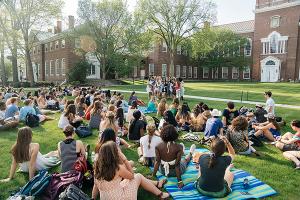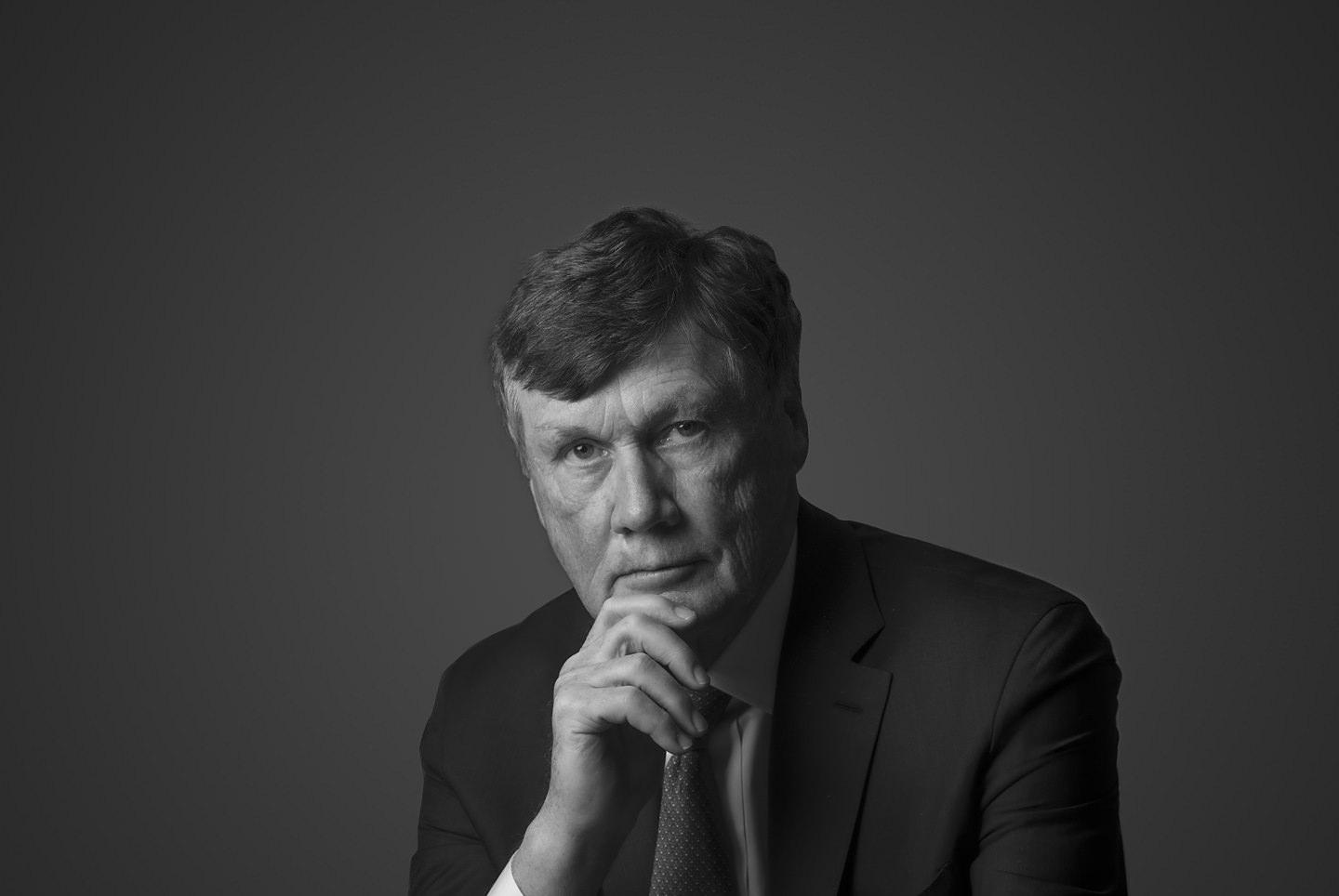
Dartmouth College Fund: Financial Aid
In uncertain times, one thing is certain: Dartmouth stands by our students. Give now to help students in this moment.
Ed Haldeman shares his thoughts on leadership and the importance of listening to others.

Charles “Ed” Haldeman Jr. ’70 graduated summa cum laude from Dartmouth and went on to graduate from Harvard in 1974 with both a law degree and an MBA (Baker Scholar). Ed launched his career as a partner and portfolio manager for Cooke & Bieler in Philadelphia, later becoming president of United Asset Management Corporation, CEO of Delaware Investments, and president and CEO of Putnam Investments. In 2009, Ed was named CEO of the Federal Home Loan Mortgage Corporation, better known as Freddie Mac, and he stabilized the company following the financial crisis of the previous year. A generous Dartmouth donor and volunteer, he served on the College’s Board of Trustees from 2004 to 2012, including three years as chair. Ed and his wife Barbara, a Harvard Law School alumna, live in Haverford, Pennsylvania. They have three children, two of them Dartmouth alumnae: Charlotte Haldeman Whitmore ’03 and Catherine J. Hale ’08.
My parents valued education and hoped, maybe even expected, that I would go on to college. They both worked incredibly hard in a little storefront business called Haldeman’s Auto Tags, in North Philadelphia. They bought a modest house in a school district where the schools were very good. My high school principal connected me with a Dartmouth alumnus, Russell Dilks, Class of 1951. He came to our house to show my parents and me film strips of Dartmouth. I remember him lugging the projector and screen into our living room. He not only encouraged us to visit Hanover, he made arrangements for us to stay at the Hanover Inn for a weekend.
Memories of how major political and world events affected the campus have stayed with me. I remember the assassination of Martin Luther King Jr. and its impact on the campus. And I remember the takeover of Parkhurst by students angry and frustrated about the Vietnam War. I can still see both the students inside Parkhurst and students of a different political view outside, sometimes singing the Alma Mater or a patriotic song. That was indicative of the split in the campus community.
I came from a working-class community where one of the values you were taught as a child was love of country. I came to Dartmouth supporting the war based on a feeling of patriotism. Several students challenged me on that, and I initially didn’t do a good job of listening to them—but my position evolved. By the time I was in graduate school, I began to realize that my position when I arrived at Dartmouth had been wrong.
Absolutely. It was a time of challenging discussions. In addition to the war, there was the issue of race relations and how best to make sure everyone in our country could have the same rights and the same opportunities—and whether to protest quietly for change or engage in civil disobedience. I benefited from hearing that debate. Listening to others and talking less made me a more effective critical thinker.
As a member of the Forensic Union participating in debate tournaments, I learned how to defend a position and I became a more confident public speaker. Also, I became president of Sigma Phi Epsilon in my senior year and, quite candidly, I didn’t do a good job. I thought that the position empowered me to decide what to do and then things would just happen. I learned that a leader has to spend a lot of time listening to others and then you have to make a compelling case for a course of action. Effective leaders listen to others and are willing to change positions based on new information.
I was selected jointly by the Freddie Mac board and the incoming secretary of the treasury, Tim Geithner. But there were 7,000 people working there, and I didn’t want them to feel like I was anointed. One of my objectives was to earn their trust, and an important part of that was visibility and personal connection. On my first day, I held an all-employee meeting that went to all of our offices by video. I told my personal story, beginning with my parents’ store.
Some alumni at the time felt we were making Dartmouth more of a research institution, like Harvard or Stanford. Those of us on the other side believed it wasn’t an either/or issue, that in fact the best classroom teachers are also excellent researchers. I believe there is now near-unanimous agreement that the teacher-scholar model is one of Dartmouth’s enduring strengths. We also learned that we needed a larger, more diverse board. When I was an undergraduate, the Board of Trustees was made up of 14 people, all older males, living in Boston or New York, which didn’t reflect the College. Our board today is larger and much more diverse in every sense—age, geography, skills.
Two come to mind. One is Lincoln, and obviously a lot of people would cite him, but he had a brilliant leadership style. As Doris Kearns Goodwin wrote in her book Team of Rivals, when Lincoln assembled his cabinet, he consciously brought together multiple points of view—conservatives, moderates, radicals. He wanted independent, strong-minded people. Leaders aren’t well served if they only hear yes. The other individual is Hank Paulson, Class of ’68, who was a successful leader in two completely different environments. He was CEO of Goldman Sachs, managing ambitious, hard-driving, smart professionals. Then he led us through the financial crisis as secretary of the treasury. He wasn’t the ultimate decision-maker, but through his persuasiveness he successfully created a plan of action to get us through the crisis.
Dartmouth helped me become a better thinker, helped me learn to work efficiently, taught me to talk less and listen more. It gave me the confidence to succeed at a very high level. It would be hard to overstate the importance of Dartmouth on my life.